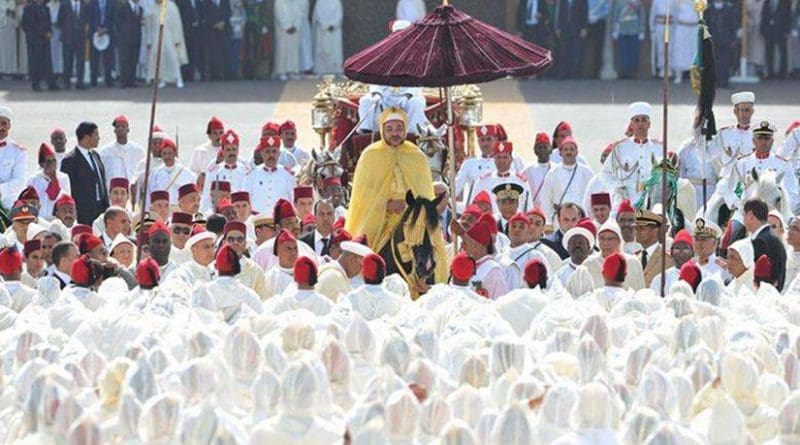Moroccan Tolerant Islam Solicited In France – OpEd
IRF reported that France and Morocco signed a joint statement on cooperation in the training of imams at the Mohammed VI Institute, opened in Rabat in March, during French President Francois Hollande’s two-day visit to Morocco
The training will promote “an Islam with the right balance” that conforms to “values of openness and tolerance”.
As many as 50 French imams could attend the international institute each year for religious training.
“Through this cooperation between France and Morocco, UMF hopes to meet the immediate needs of training imams and chaplains, and prepare at the same time future teacher training institutions to be created on French territory,” said UMF head Mohammed Moussaoui in a statement.
A first class of 20 students from France joined the Institute at its inauguration in March, while 30 more are expected to begin this month, according to the UMF.
The average duration of the training is three years. On their return to France, students will enrol in additional academic training focused on the sociology of religion in France and the right of worship.
The religious impact of the Kingdom and its commitment to the precepts of moderate, open and tolerant Islam turned Morocco into a religious model widely solicited not only in Africa, but also in Europe.
Moroccan spiritual diplomacy has been very successful in West Africa due to the country’s historic Maliki School through Sufi channels and methods of reaching worshipers in the sub-Saharan region and West Africa. The Tijaniya sufi order widely operating in West Africa was founded in North Africa during the 18th century. Other Sufi orders – including the Qadiriyya and Chadiliya orders – soon followed, gaining large numbers of devotees who identified heavily with Morocco, where the tomb of Sheikh Ahmed Tijani, the founder of the Tijaniyyah order, is buried.
Sufism attracts more young Africans because of its tolerance, due to the easy interpretation that gives to the Qur’an, its rejection of fanaticism and its embrace of modernity. Young people are the principles of” beauty” and” humanity”. Sufism balanced lifestyle that allows them to enjoy arts, music and love without having to abandon their spiritual or religious obligations. Sufi orders exist throughout Morocco. They organize regular gatherings to pray, chant and debate timely topics of social and political, from the protection of the environment and social charity to the fight against drugs and the threat of terrorism.
In addition, focusing on the universal values that Islam shares with Christianity and Judaism (as the pursuit of happiness, the love of the family, tolerance of racial and religious differences and the promotion of peace) Sufi gatherings inspire young people to engage in interfaith dialogue.
Sufism is so diffuse in Moroccan culture that its role cannot be properly understood if reduced to a sect or a sacred place. People get together to sing Sufi poetry, the primordial essence of the human being, the virtues of simplicity and the healing gifts of Sufi saints such as Sidi Abderrahman Majdub, Sidi Ahmed Tijani, and Sidi Bouabid Charki, the spiritual masters revered by peers and disciples for having attained spiritual union with God during their earthly lives.
In March 2015, King Mohammed VI inaugurated the Mohammed VI Institute for the Training of Imams, Morchidines, and Morchidates in the capital, Rabat. The religious training center that aims to instill the values of Morocco’s open, moderate form of Islam, based on the Maliki rite and Sunni Sufism, in the next generation of Muslim religious leaders (imams) and preachers (morchidines and morchidates) from across the region and the world.
The center is a key element in Morocco’s ongoing efforts to promote religious moderation and tolerance as a shield against extremism in the region. So it is no surprise if the Moroccan tolerant Islam is widely solicited.

